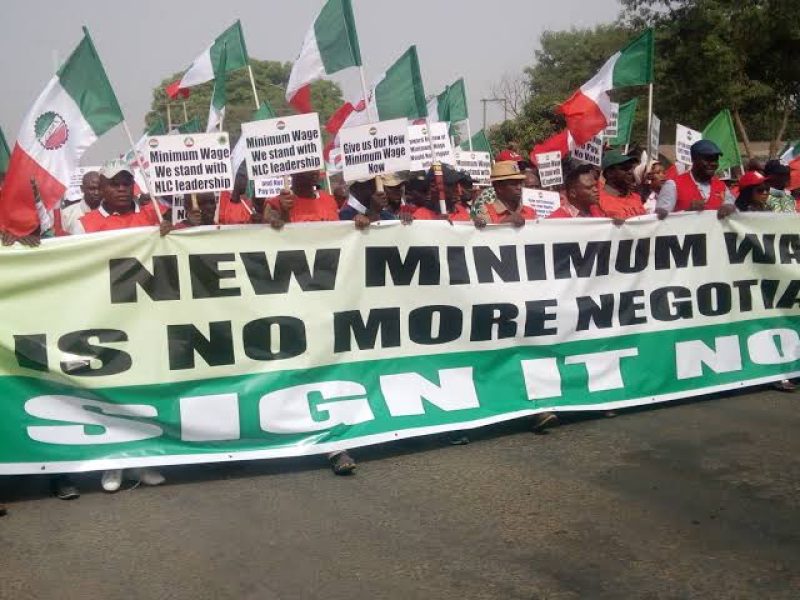The Federal Government has commenced discussions on a new minimum wage for Nigerians with States, with a view to guide the Minimum Wage Review Committee as they work out a new wage for workers.
This is sequel to efforts at alleviating the suffering of the populace warranted by the high inflation following the removal of fuel subsidy.
It is a major demand of Labour aimed at enabling workers to have some relief in the fuel subsidy removal saga.
Unfortunately, while Labour is eyeing a 100 percent increase in wages for workers, the Federal Government thinks otherwise.
According to Ajuri Ngelale, a spokesman to President Bola Ahmed Tinubu, “There is a reference to minimum wage only, not a doubling of every worker’s salary. That is misinformation.
“It’s important that we do not get ahead of ourselves and allow the Minimum Wage Review Committee to come to its conclusions as negotiations between the Federal and State Governments evolve.
“What we know now is that there is consensus that an upward review of the national minimum wage is now in order”.
Recall that former President Muhammadu Buhari on April 18, 2019, signed the new Minimum Wage Bill of N30,000.
Some of the states are yet to implement the minimum wage, even as some others, such as Imo, recently increased their minimum wage to N40,000.
Ngelale used the fora to reassure Labour that President Tinubu would keep faith with all the plans rolled out for Nigerians as regards palliatives for the withdrawal of the fuel subsidy.
“The President has given a very concrete implementation timeline on the robust set of relief package he has detailed in his most recent speech.
“The end of the first quarter of 2024 is the timeframe for rounding off agricultural interventions and MSMEs (Small and Medium Scale Enterprises) capitalisation interventions.
“The CNG (Compressed Natural Gas) supply side and demand side reforms will run in multiple phases, ending between the second quarter of 2024 and the first quarter of 2025″, he said.
Penultimate Monday, President Tinubu, in a broadcast, disclosed relief packages to cushion the pain warranted by petrol subsidy removal, to include the release of over N275 billion to boost the manufacturing sector and the MSMEs.
This, the President said, is in addition to the ongoing talks with Labour on salary review, for which budget provisions will be made once the terms are agreed upon.
While commending private sector organisations that had already taken the initiative to increase remunerations for its workers, the President said, “Once we agree on the new minimum wage and general upward review, we will make budget provisions for it for immediate implementation”.
Labour had, among others, demanded a pay rise following the petrol subsidy withdrawal, with some chapters asking for N200,000.
Before the increase by the Buhari administration, the minimum wage was N18,000.

